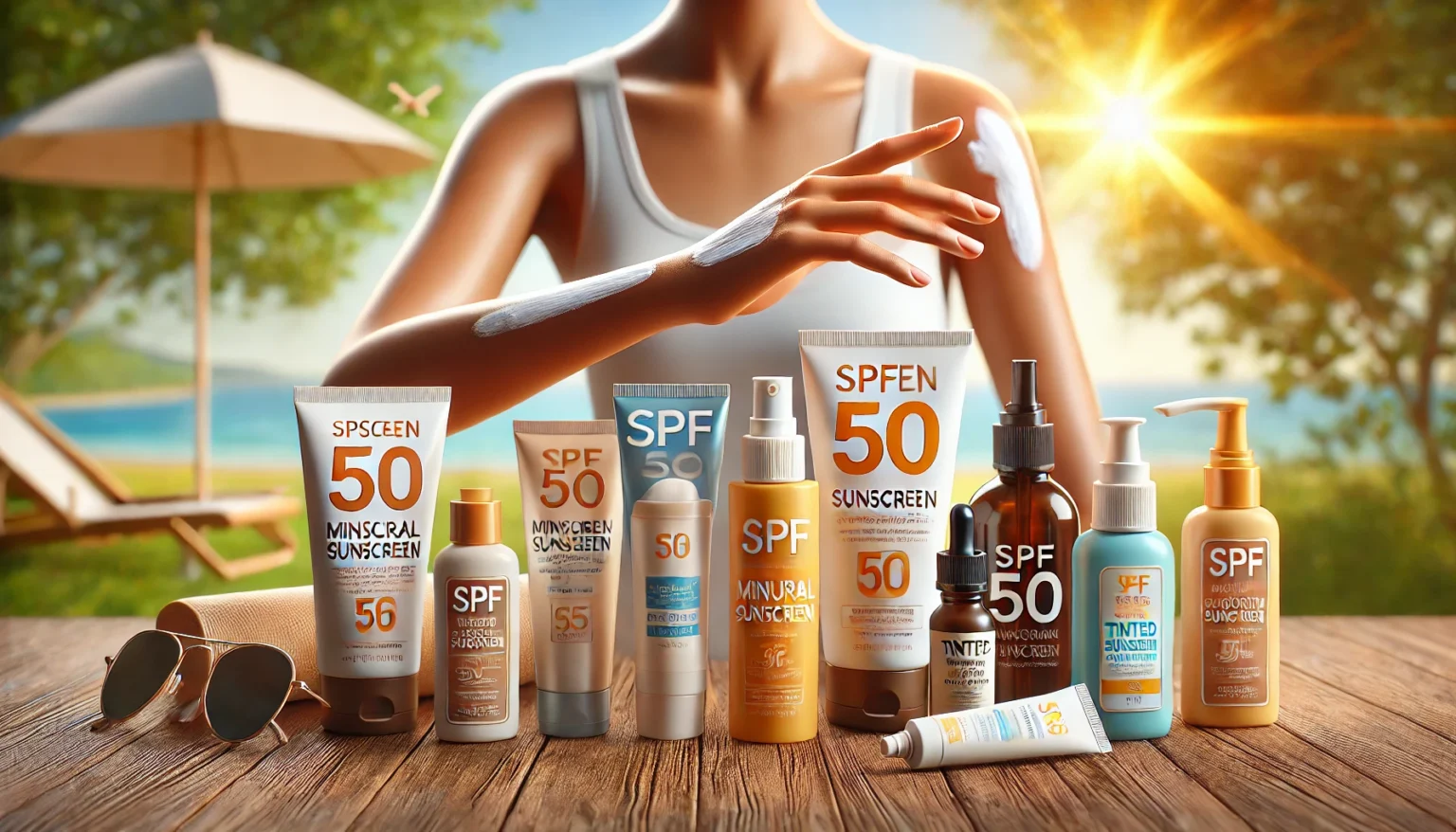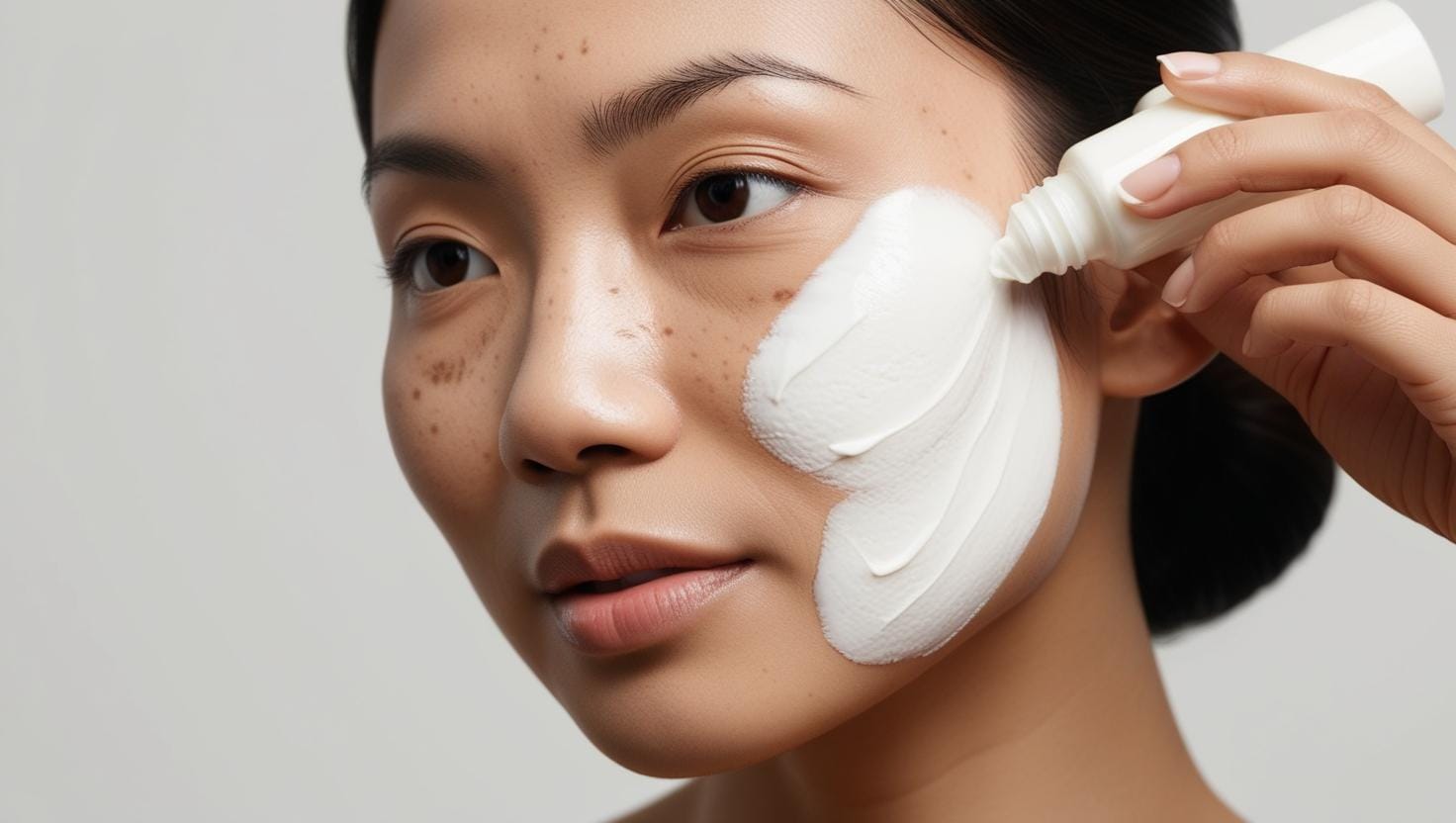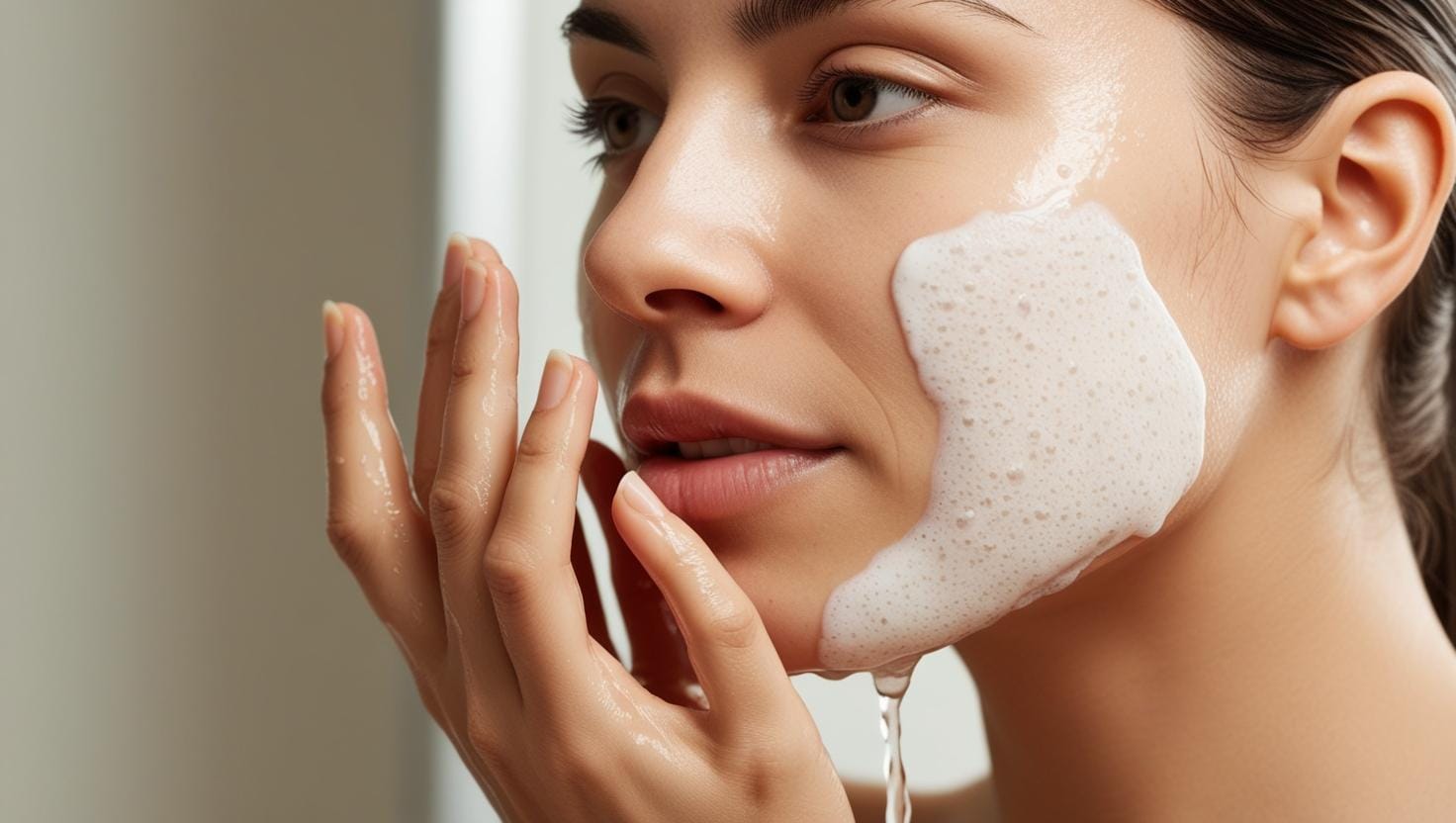Sunscreen is one of the most essential skincare products, protecting your skin from UV damage, premature aging, and skin cancer. However, with so many options available, choosing the right sunscreen can be confusing. In this guide, we’ll cover why sunscreen is important, how it works, and how to choose the best one for your skin type.
Why Is Sunscreen So Important?
Exposure to ultraviolet (UV) rays from the sun can cause severe skin damage over time, even on cloudy days. Sunscreen helps by:
✔️ Preventing sunburn (caused by UVB rays)
✔️ Reducing the risk of skin cancer (linked to both UVA and UVB rays)
✔️ Slowing premature aging (wrinkles, fine lines, and sunspots)
✔️ Minimizing hyperpigmentation and dark spots
Understanding SPF: What Does It Mean?
SPF (Sun Protection Factor) measures how well a sunscreen protects against UVB rays, which cause sunburn.
- SPF 15 – Blocks about 93% of UVB rays
- SPF 30 – Blocks about 97% of UVB rays
- SPF 50 – Blocks about 98% of UVB rays
Higher SPF values provide more protection, but no sunscreen can block 100% of UV rays. SPF 30 or higher is recommended for daily use.
The Difference Between UVA and UVB Rays
🌞 UVA Rays – Penetrate deeper into the skin, causing premature aging and increasing the risk of skin cancer.
🔥 UVB Rays – Cause sunburn and directly damage skin cells, increasing the risk of skin cancer.
👉 Look for “Broad-Spectrum” on the label to ensure your sunscreen protects against both UVA and UVB rays.
Chemical vs. Mineral Sunscreen: Which One Should You Use?
There are two main types of sunscreen:
1. Chemical Sunscreens
✅ Absorb UV rays and convert them into heat, which is then released from the skin.
✅ Lightweight and blends easily into the skin.
🚫 May cause irritation in sensitive skin.
Common Ingredients: Oxybenzone, Avobenzone, Octisalate, Octocrylene.
2. Mineral (Physical) Sunscreens
✅ Sits on top of the skin and reflects UV rays.
✅ Best for sensitive skin and acne-prone skin.
🚫 Can leave a white cast, especially on darker skin tones.
Common Ingredients: Zinc Oxide, Titanium Dioxide.
How to Choose the Right Sunscreen for Your Skin Type
Learn more : About Sunscreen

For Oily or Acne-Prone Skin:
✔️ Choose oil-free, lightweight, and non-comedogenic formulas.
✔️ Gel-based or mattifying sunscreens work best.
✔️ Look for zinc oxide, which helps control oil.
For Dry Skin:
✔️ Choose hydrating formulas with ingredients like hyaluronic acid or glycerin.
✔️ Cream-based sunscreens work best.
For Sensitive Skin:
✔️ Use mineral (physical) sunscreens with zinc oxide or titanium dioxide.
✔️ Avoid fragrance, alcohol, and chemical filters that may cause irritation.
For Dark Skin:
✔️ Choose sheer or tinted mineral sunscreens to avoid a white cast.
✔️ Look for ultra-lightweight formulas that blend well.
How to Apply Sunscreen Properly
🚨 Most people don’t apply enough sunscreen! Here’s how to do it right:
✔️ Apply 15-20 minutes before sun exposure.
✔️ Use about a teaspoon for the face and a shot glass amount for the body.
✔️ Reapply every 2 hours or immediately after swimming or sweating.
Common Myths About Sunscreen
❌ “I don’t need sunscreen on cloudy days.”
✅ UV rays can penetrate clouds and cause damage, so always wear sunscreen.
❌ “Darker skin tones don’t need sunscreen.”
✅ While melanin provides some natural protection, darker skin can still get sun damage and hyperpigmentation.
❌ “Makeup with SPF is enough.”
✅ Most makeup doesn’t provide enough SPF coverage, so apply a dedicated sunscreen underneath.
Sunscreen Is Your Skin’s Best Friend
Sunscreen is an essential part of any skincare routine, protecting your skin from damage, aging, and sunburn. The key is choosing the right sunscreen for your skin type and applying it consistently.
Would you like any modifications to this article? If not, I’ll create a realistic horizontal image and move on to the next article! 😊
O




The site sugal999login has no problems logging in so this is a huge win! Let’s play!
TG77casino, that’s where I spent most last Friday! Good selection of games, slots were treating me well (sometimes, haha). Always a decent choice for a little action. See for yourself: tg77casino
BBRbet444 is a new one on my radar. Checking it out for their variety of games. Looks promising! See for yourself here: bbrbet444.
Fun88605? Hope they live up to their name! Gotta have some good times while betting y’know? Or else, what’s the point? fun88605